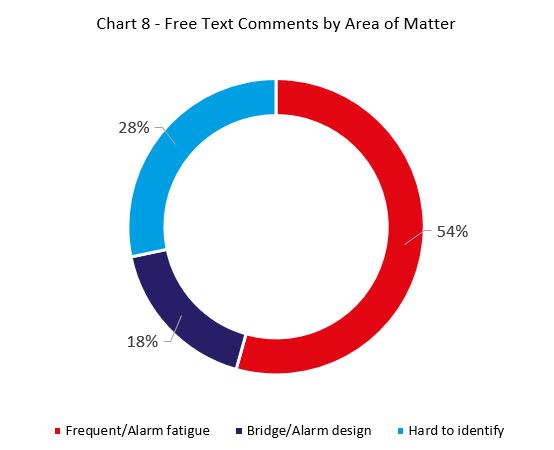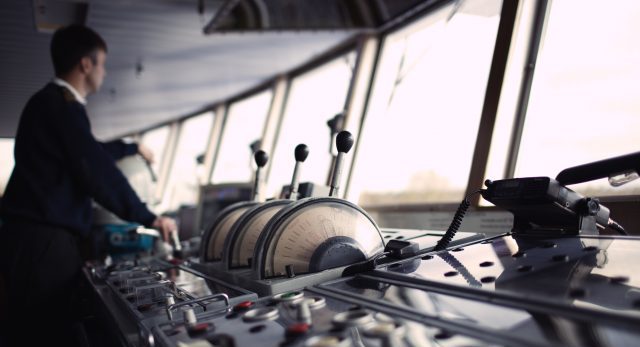A recent shift to automation and new technologies makes imminent the need of additional skills for seafarers to adequately respond to new requirements. In 2017-2018, the Shipowners Club ran a survey in conjunction with the Department of Psychology at Royal Holloway, University of London, to investigate whether bridge alarms affected the attention and focus of bridge watchkeepers.
It is evident from the feedback of these seafarers that the current regulations and arrangements relating to bridge alarm monitoring and systems can be improved upon to allow crew to fully utilise the benefits of the technology being made available to them. Doing so would improve the working environment of seafarers and may assist with the reduction of related claims experienced by Members and the wider maritime industry,
…the Club said presenting the results.
Questionnaire submissions came mainly from Masters and from a wide variety of vessel types.
Key findings
- 3, 89% of participants thought false alarms were a problem and 66% said the alarms were not easily detectable.
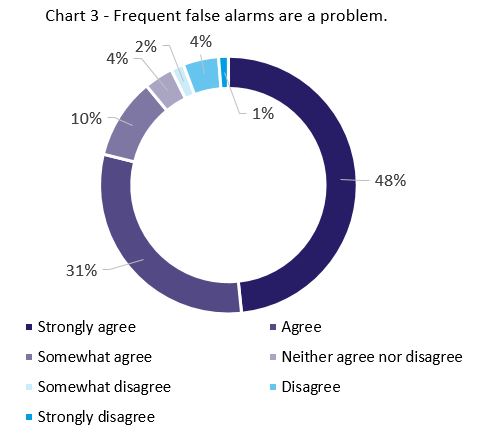
- Overall, a 57% of responses disagreed that alarms are graded by sound.
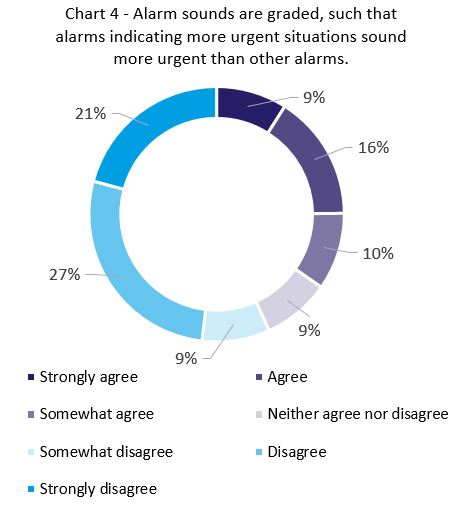
- A 85% of participants agreed that they were aware of the alarms and the systems.
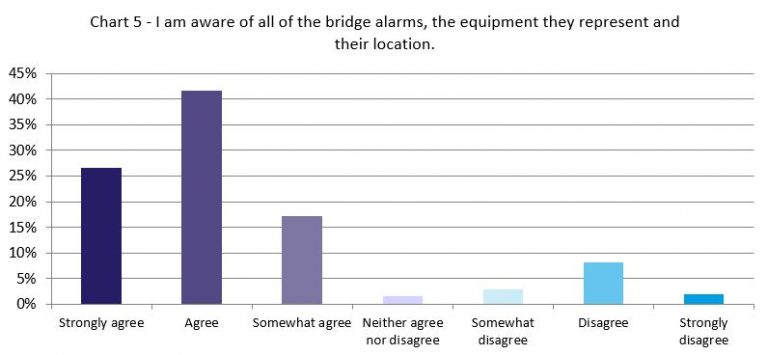
- However, when reviewing the free text comments, 50% of participants reported some frustration with the format of the bridge alarms themselves. The issues disclosed mainly concerned the sounds being the same tone for all alarms and there being no distinguishing factors between alarm systems.
When asked for comments on the statement ‘Alarms that reoccur frequently are sometimes ignored/silenced and not actioned, as they are not considered a priority when carrying out other navigation/watch-keeping duties’, some responses confirmed the statement which may relate to the issue highlighted in the previous responses regarding the difficulty of distinguishing between alarms.
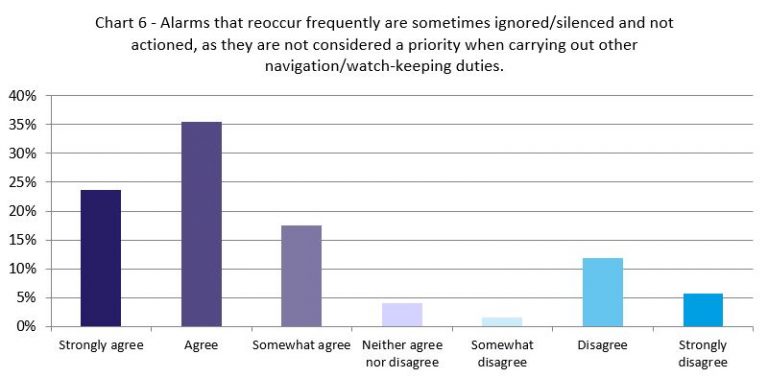
- About 77% of crew do not want to be disturbed from their watchkeeping duties.
This could be interpreted as a positive result, however, this result also presents a danger that the crew will not recognise the importance of the alarms sounding and could be unaware of an emergency developing.
- Another factor that appeared frequently in the free text answers was the crew’s readiness to silence alarms without investigation due to ‘alarm fatigue’ caused by repeated alarm soundings for no apparent reason. This is reflected in this chart where 45% of the respondents agreed that this happened.
When this was analysed by the level of role, 44% of Masters, 41% of Chief Officers, 48% of Second Officers and 60% of Third Officers agreed, showing that this practice was prevalent among all ranks.
- With respect to the Bridge Navigational Watch Alarm System, 24% (56) of participants reported that they never or seldom engaged this system.
Concluding, the main issue raised was frequent alarm fatigue followed by the alarms being hard to identify and then the design of the alarms system or bridge itself.
